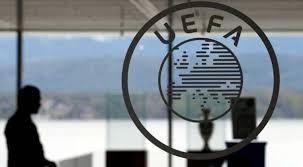By Samindra Kunti
August 19 – UEFA is planning a €6 billion relief fund to help leading European clubs survive the global health crisis that has ravaged the football industry.
As clubs across the continent continue to navigate the difficult pandemic landscape and seek to emerge from the biggest football crisis since World War II with billions in revenue lost, the European governing body is in negotiation with financial institutions over setting up a major loan fund for distressed clubs.
Under UEFA’s plans, clubs would have access to funds and loans at lower rates, according to Bloomberg, with repayments and interest rates tied to future payouts from their participation in the club competitions run by UEFA – the Champions League, the Europa League and the newly introduced Conference League.
Earlier this year UEFA had engaged with investment firm Centricus over financing the plans, but Nyon is now looking towards Citigroup and Unicredit to provide the finance. Centricus been in aborted talks with FIFA over expanded Club World Cup plans.
Deloitte has reported that the European football market contracted by 13%. FIFA launched its own Covid-19 relief fund last June, freeing more than €1 billion to help its member associations.
FFP change coming
UEFA is also planning a revamp of its Financial Fair Play (FFP) rules. UEFA will also seek to introduce a luxury tax to replace FFP rules and is considering a salary cap in the game. Those rules would be designed to keep the elite clubs, at the top of the pyramid, in financial check.
Earlier this year, a cabal of super clubs tried to launch a breakaway European Super League (ESL), but the project collapsed within 48 hours after a wave of protests. Nine of those clubs rejoined European Clubs Association (ECA) earlier this week, with FC Barcelona, Real Madrid and Juventus still clinging on to the idea and future materialisation of a Super League.
With the European Club Association (ECA) having readmitted the nine back into its membership, the idea of a European breakaway now looks to be in the far distance. However, FIFA’s plans for its Club World Cup are still unclear and with FIFA president Gianni Infantino having been linked to the ESL plans, the prospect of a Super League in another form is still a potential.
That could of course eat into UEFA’s long term club competition revenues, as well as impact unfavourably for UEFA on the finance and loan conditions of any institutional fund arrangements.
Last week, La Liga announced that it has secured outside investment after striking a deal with private equity firm CVC for a €2.7 billion investment in exchange for a 10% stake in its commercial rights. That figure dropped to €2.1 billion after a number of clubs, including FC Barcelona and Real Madrid, opposed the deal and opted out.
Contact the writer of this story at moc.l1751415361labto1751415361ofdlr1751415361owedi1751415361sni@n1751415361osloh1751415361cin.l1751415361uap1751415361

